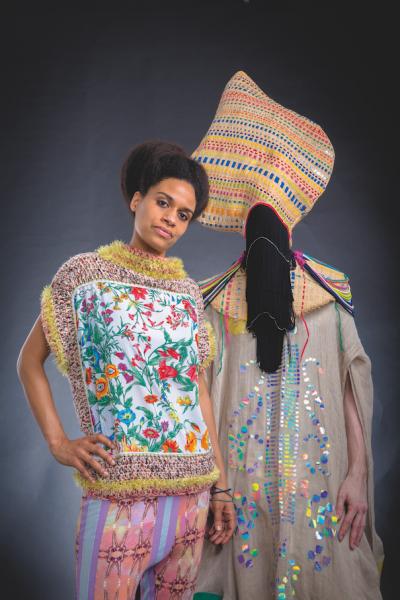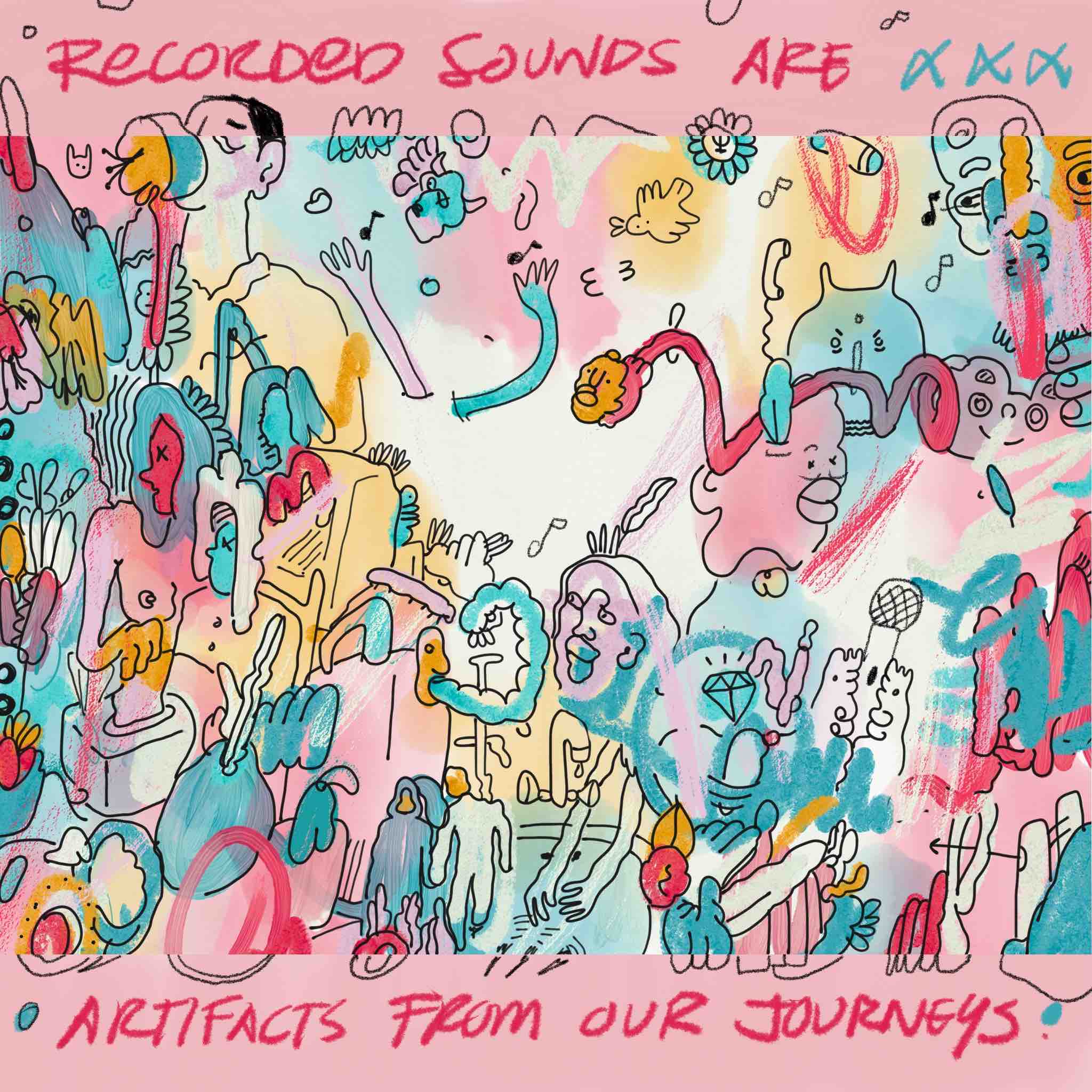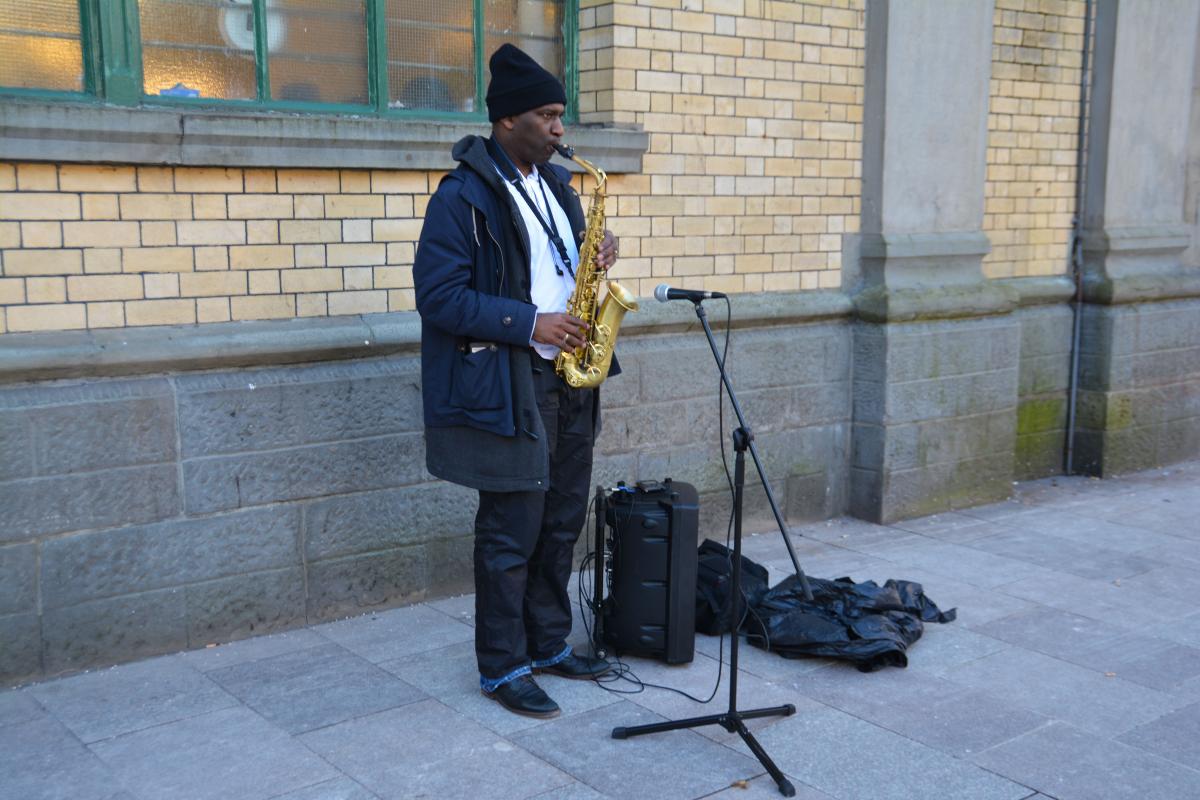
The Sample Shapes the Song
Swiss-Ghanaian singer and musician Joy Frempong of the duo OY made a trip to Southern and Western Africa to collect sounds and stories for their music. She tells us how she re-works these samples and what she is sometimes worries about. From the Norient book Seismographic Sounds (see and order here).
[Thomas Burkhalter]: In your first solo album you worked with sounds from childhood and for the second album with recordings from Africa. What changed?
[Joy Frempong]: I started both albums with a concept in mind. On First Box Then Walk I used a lot of samples of toys. I linked them to my keyboard sampler from where I could play them in different pitches. I channeled my voice to the keyboard, too, so that I could replay it – live on stage and in the recording studio. For the album No Problem Saloon I took a trip to Western and Southern Africa. As I do not look like what most people think of as Swiss, I am often asked about my background. Because my father is from Ghana and my mother is Swiss, I have often found that I am supposed to represent Africa. I did spend the first seven years of my life in Ghana and have been there many times after. But I don’t speak any of the local languages and I don’t know contemporary Ghana all that well.
However, Ghana was the only African country I had ever been to and I became curious to know how much my Ghanaian experience could stand for other African countries, and how similar neighboring countries with other tribal backgrounds and a different colonial history would be related. The album was my excuse to finally make a trip and gather some impressions of new cultures. For three months I visited Ghana, Burkina Faso and several countries in Southern Africa to record sounds and stories there. But most of all, working on the album and searching for background information was also a good moment to do some cyber-journeying and discover many contemporary blogs of people who share a similar story to mine – having an African background or having emigrated, and telling their own story about their experiences. The common sentiment is that Africa is not presented correctly in Western media. It too often comes across as the continent of problems, and only problems.
[TB]: On the single «Market Place» we hear sampled field recordings, all edited to a rhythmical four-beat pattern. You recite proverbs and quotes from conversation that you collected: «They say life is like a market place. You come, you buy small, you greet some people small, and then you go, you leave.» What were pleasures and challenges when working with these sounds and words from your trip?
[JF]: It was a pleasure mainly. I talked to many people and wanted to feel what moves them. Snippets of these conversations are now in our music. «Market Place» for example is on the one hand based on a traditional proverb; on the other hand it is inspired by the conversation of two old friends aged 73 and 83, who had a long discussion about which of them would leave first, whose cell phone units would be used up sooner, and how they would choose to bury each other. The recording itself was at times tricky. I searched for sounds that could function as bass, melodies or beats. At a market in Ouagadougou there were some guys sharpening knives.
At first, I wanted to record that sound just by passing by, but then decided to ask permission. The result was that everybody around took notice of my action, shouted their comments about the situation, and it became almost impossible to record just the clean sound of the knives. Other moments were easy: I had absolutely no interruptions when recording my mother’s aged washing machine that had a spectacular sound that I could later use as a bass for the track «Chicken Beer». The great thing about sampled field recordings is that often the noises one didn’t focus on while recording give the sound an extra touch. Some sounds you only discover when listening to the recordings at home. It is amazing to keep editing these recordings weeks and months later. Going through the hours of material is a bit like looking at photos. You hear the voices of people you met. You relive the journey.

[TB]: Together with Lleluja-Ha, your co-producer and drummer, you created fragments of melodies and songs from these samples. Is the key criteria whether a recorded sound fits into your music? Or is it more important what a sound stood for in the local context in which you recorded it?
[JF]: Both are important, I think. These sounds are manipulated to become building blocks of a song. But they still live in the music. A short sound of a car door slamming is different to a clean studio recording. Often such a sound will come in a funny combination with, for example, an expressive voice. This combination creates a micro-rhythm that's never strictly metronomic. It stays a bit edgy. The sound shapes the music. And I personally have images in my head of every sound on this album. I know when and where I recorded it, and how it felt. This makes the music very rich to me. It’s a dimension hidden from the listener, but I’m sure it relates in another way.
[TB]: Musicians in Africa and Asia sometimes complain that foreign musicians keep sampling the most obvious and clichéd sounds from their places. How would you reply to such comments?
[JF]: Well, in our music, you will often not recognize the sounds that you hear. What you think is a synthesizer is in fact made up from voices mixed with clapping. I think it’s important to work with depth. Also, I might not have avoided clichés completely, but I didn’t look for them either. I was basically just documenting my road trip. Some everyday sounds I recorded can be heard in Berlin as well as in Bamako, but the particular experience makes the difference. For example, I wouldn’t usually have found it very interesting to record keys, but in Johannesburg safety is a very big issue and I had about three doors to unlock – including some that didn’t perfectly fit into the frame and did beautiful singing sounds – in order to enter my little garden flat. So, I decided to record my entering into the flat (you can hear the result on «Akwaaba»). Again, the key sound would be enriched by some tweeting of birds in the background, the wooden door, and a bus engine alongside the above mentioned washing machine, which was one of the few sounds that finally worked in a bass function.
[TB]: Have you played your album for people in Western or Southern Africa?
[JF]: We have performed in South Africa, Swaziland, Zimbabwe and Tanzania. I first felt a bit uneasy about how the lyrics might be taken. I come out of this inside-outside perspective, and I have the impression that people who have a similar bi-cultural background identify with the lyrical content most. At concerts, I often start one of our songs by telling this story about me introducing myself in a bar in Northern Ghana: «Hello, my name is Joy», and a person replying «Oh, and I am Wonderful». The song is something like an ode to beautiful names like «Happy, Love, Wonderful, and Peace» and other names I came across.
The little anecdote is funny for most people in Europe, but how will it be perceived where such names are very common? Will they say – his is Wonderful, so what? So, it was a bit strange to perform in Europe where all these stories were perceived as me, the «African» telling about faraway places (something I had so far always tried to clarify as «You’re mistaken, I spent most of my life in Switzerland»), and then being in an African country as the European singing about her African stories. Luckily, we found much appreciation of our style here and there.
The text was published first in a very short version in the second Norient book Seismographic Sounds.
Biography
Shop

Published on February 13, 2018
Last updated on October 07, 2020
Topics
Special
Snap


